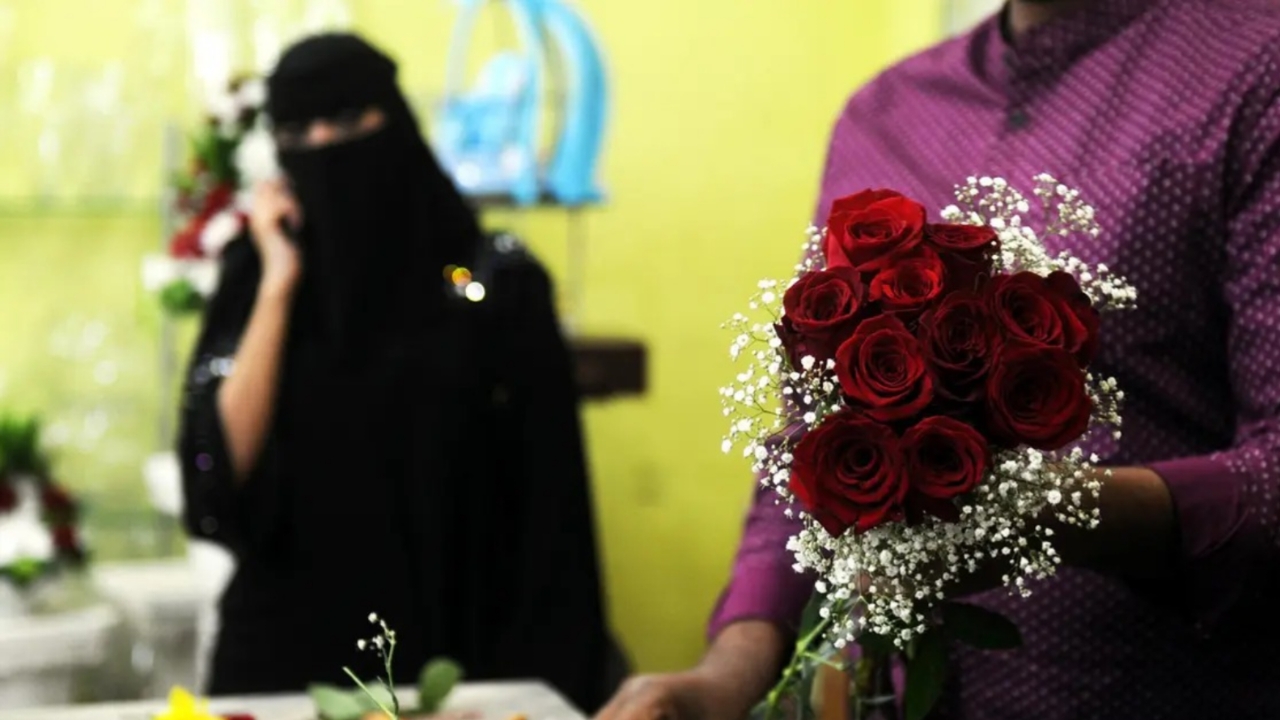The Unspoken Rules: Why African Parents Rarely Say “I’m Sorry”

Written By: Adedoyin Oluwadarasimi
In many African homes, apologies are often seen as a threat to authority and discipline. This silence around remorse is rooted in history, power dynamics, and generational habits that suppress emotional vulnerability.
Why Saying 'Sorry' Is Complicated
In many African households, the act of apologizing is not just rare, it is culturally uncomfortable. For most elders, particularly parents, offering an apology to a younger person is often considered a sign of weakness. In these spaces, authority is deeply revered, and saying “I’m sorry” appears to conflict with the traditional image of discipline and strength.
The result is a cycle of emotional silence, not because of a lack of remorse, but due to the belief that power must always be preserved. Over time, this mindset has hardened into a generational pattern that many families still follow today.
Respect Over Resolution
In African cultures, respect for elders is a non-negotiable value. However, this often translates into unquestioning obedience, where challenging or correcting an adult, even respectfully is considered rude. Parents are hesitant to admit wrongdoing to children for fear of losing control or encouraging what they perceive as disrespect.
This power imbalance means children are taught to apologize quickly even when confused but rarely see the same behavior modeled by adults. Over time, this produces a one-sided sense of accountability.
Parenting from Experience, Not Awareness
Many African parents repeat what they experienced strict discipline, limited emotion, no apologies. Common justifications like, “I turned out fine,” suggest a reluctance to question old methods. But surviving is not the same as thriving.
source: Dadcentral
This conditioning fosters emotional illiteracy, where expressing regret or vulnerability becomes unfamiliar. Children raised in these environments grow into adults who struggle with apologizing or receiving apologies, perpetuating a harmful emotional cycle.
“What is learned emotionally is often repeated emotionally.” — African Family Life Institute.
“Children learn how to respond to stress or conflict by observing how their family behaves.” Lyra Health
Religious Interpretations and Misapplications
Religion plays a pivotal role in African parenting. Whether Christianity or Islam, both emphasize forgiveness, humility, and repentance. However, some teachings are selectively applied especially when it comes to adults apologizing to younger individuals.
Parents frequently quote verses like “Honor your father and mother” (Exodus 20:12), but seldom reflect on verses about gentleness, meekness, and correction in love. Faith, in this case, becomes a tool for enforcing silence, rather than encouraging healing through humility.
Emotional Illiteracy and Suppression
In many African homes, emotional expression is rarely taught, much less encouraged. Words like guilt, remorse, or vulnerability are either misunderstood or entirely absent from the family vocabulary. As a result, even when a parent feels regret, they may lack the language to express it.
This leads to emotional suppression, where feelings are buried rather than addressed. Apology becomes alien, and over time, children grow up unaware of how to resolve conflicts healthily.
The Fear of Losing Face
Pride plays a powerful role. Parents often fear that an apology will lower their status in the eyes of their children. The dominant belief is that parental authority must remain unchallenged even at the expense of emotional clarity.
However, research in child psychology shows that children tend to respect honesty over perfection. They admire caregivers who can admit mistakes, as it models authenticity and trustworthiness.
Source: celebree school
A Culture of Correction Without Connection
Discipline in many African homes is rooted in physical punishment or stern warnings, followed by silence. Emotional repair is seldom part of the process. Children are expected to “move on” without acknowledgment of pain or any gesture of reconciliation.
This breeds emotional distance, where children learn to suppress hurt and misinterpret love as punishment. The phrase “I discipline because I care” rings hollow when not accompanied by compassionate communication.
What It Costs Children Emotionally
The absence of parental apology carries deep emotional consequences. Children may develop low self-worth, believing that their pain is insignificant. Over time, they internalize that feelings don’t matter, and that accountability is a burden placed only on the powerless.
As adults, these individuals may struggle with forming healthy relationships, avoiding vulnerability, or apologizing when they’re wrong. This pattern extends beyond homes, into friendships, work, and even parenting their own children.
The Power of Apology
An apology is not a confession of failure, it is an act of healing. In families, it bridges the gap between hurt and hope, reinforcing trust and opening the door for deeper connection.
Experts agree that when parents apologize, they model empathy, accountability, and emotional safety. It becomes easier for children to mirror this behavior, leading to healthier generational relationships.
Source: Google
How to Foster a Culture of Apology in African Homes
1. Start with Emotional Literacy
Teach both adults and children to name and express their feelings. Emotional intelligence is not a Western import, it’s a human necessity that helps build resilient relationships.
2. Encourage Reflective Parenting
Urge parents to evaluate their actions and understand their impact. Apologizing doesn’t reduce respect, it increases credibility and fosters trust.
3. Normalize Mutual Apologies
Make apology a two-way street. When children see adults apologize sincerely, they feel safer and learn that accountability is a shared value.
4. Integrate Cultural Values with Compassion
Respect for elders need not eliminate empathy. Culture can coexist with modern tools of emotional connection. Tradition and compassion are not mutually exclusive.
5. Leverage Faith Positively
Use scripture and religious teachings to teach gentleness, humility, and forgiveness. Let faith be a guide for healing, not a shield for pride.
Examples of Change: Real Stories from African Homes
In Kenya, the initiativeParenting with Love and Limits trains families to use mutual respect, active listening, and apology in daily life. Since its inception, participants report stronger bonds and fewer adolescent conflicts.
In Nigeria, select schools in Lagos and Abuja have introduced conflict resolution and empathy training into their life skills curriculum. Students now participate in apology exercises that strengthen both peer and family relationships.
Conclusion
Apology should never be viewed as defeat. In reality, it is a courageous act of emotional leadership. When African parents choose to apologize, they are not just healing one moment, they are rebuilding generational trust.
The future of African parenting lies not in perfection, but in presence, honesty, and the willingness to say, “I was wrong, and I’m sorry.”
And that, perhaps, is the most powerful legacy of all.
Written By: Adedoyin Oluwadarasimi
You may also like...
Super Eagles Fury! Coach Eric Chelle Slammed Over Shocking $130K Salary Demand!
)
Super Eagles head coach Eric Chelle's demands for a $130,000 monthly salary and extensive benefits have ignited a major ...
Premier League Immortal! James Milner Shatters Appearance Record, Klopp Hails Legend!

Football icon James Milner has surpassed Gareth Barry's Premier League appearance record, making his 654th outing at age...
Starfleet Shockwave: Fans Missed Key Detail in 'Deep Space Nine' Icon's 'Starfleet Academy' Return!

Starfleet Academy's latest episode features the long-awaited return of Jake Sisko, honoring his legendary father, Captai...
Rhaenyra's Destiny: 'House of the Dragon' Hints at Shocking Game of Thrones Finale Twist!

The 'House of the Dragon' Season 3 teaser hints at a dark path for Rhaenyra, suggesting she may descend into madness. He...
Amidah Lateef Unveils Shocking Truth About Nigerian University Hostel Crisis!

Many university students are forced to live off-campus due to limited hostel spaces, facing daily commutes, financial bu...
African Development Soars: Eswatini Hails Ethiopia's Ambitious Mega Projects

The Kingdom of Eswatini has lauded Ethiopia's significant strides in large-scale development projects, particularly high...
West African Tensions Mount: Ghana Drags Togo to Arbitration Over Maritime Borders

Ghana has initiated international arbitration under UNCLOS to settle its long-standing maritime boundary dispute with To...
Indian AI Arena Ignites: Sarvam Unleashes Indus AI Chat App in Fierce Market Battle

Sarvam, an Indian AI startup, has launched its Indus chat app, powered by its 105-billion-parameter large language model...






